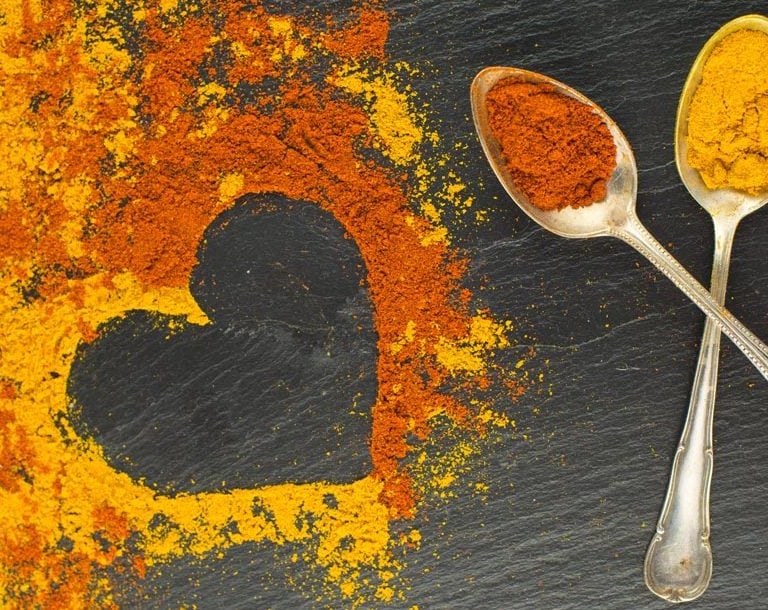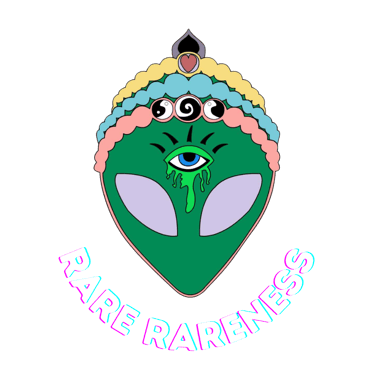Herbs And Natural Remedies For High Blood Pressure
Here are some herbs and natural ways to regulate that blood pressure!
HEART HEALTHBLOOD PRESSURENATURAL REMEDIES


Herbs to Help Regulate High Blood Pressure
High blood pressure, or hypertension, affects millions worldwide, often leading to serious health risks like heart disease and stroke. While pharmaceutical drugs can be effective for the short term, many come with side effects such as dizziness, fatigue, headaches, and nausea. For those seeking a gentler more natural approach, nature offers powerful alternatives that can help regulate blood pressure by addressing its root causes.
Let’s explore some incredible herbs and natural remedies that can help you manage hypertension naturally as well as discuss the difference between Western medicine methods of treating high blood pressure.
How High Blood Pressure Medications Work (and Their Downsides)
Blood pressure medications are one of the most commonly prescribed medications in the world. Pharmaceutical treatments for high blood pressure often include:
Diuretics: Help your body eliminate excess salt and water. Common side effects: dehydration, muscle cramps, and fatigue.
Beta-blockers: Block the effects of adrenaline (epinephrine) on beta receptors in the heart and blood vessels. This slows the heart rate, reduces the force of heart contractions, and lowers blood pressure by reducing the amount of hard work the heart has to do. Common side effects: dizziness, cold extremities, depression, sexual dysfunction, and sleep disturbances.
ACE inhibitors: Relax blood vessels by blocking a hormone that narrows them. Common side effects: dry cough, headaches, and kidney issues.
Calcium Channel Blockers (CCBs): Prevent calcium from entering the muscle cells of the heart and blood vessel walls. Calcium is essential for muscle contraction, so by blocking its entry, CCBs relax blood vessels, reduce heart workload, and improve blood flow. Common side effects: Dizziness or lightheadedness due to lowered blood pressure, swelling in the ankles and feet (edema), headaches from blood vessel dilation. constipation lushing, and fatigue or weakness.
While these medications are effective for the short term, their long-term use can strain other organs or create new health concerns. That’s where herbal alternatives come in—they work to address the underlying causes of high blood pressure with fewer (or no) side effects.
Herbs and Natural Remedies for High Blood Pressure
1. Beetroot
Beetroot is a superstar for heart health. Rich in nitrates, it helps improve blood flow by dilating blood vessels and lowering blood pressure. Regular consumption of beetroot juice or powder has been shown to reduce systolic and diastolic blood pressure significantly.
Why it works: Nitrates convert into nitric oxide, which relaxes and widens blood vessels, improving circulation.
How to use it: Drink fresh beetroot juice daily or add beetroot powder to smoothies or water.
2. Hibiscus
This vibrant flower isn’t just beautiful—it’s also a potent blood pressure regulator. Hibiscus tea has diuretic properties, helping your body shed excess salt and water, while its antioxidants protect blood vessels from damage.
Why it works: It relaxes blood vessel walls and improves elasticity, reducing strain on the cardiovascular system.
How to use it: Steep dried hibiscus flowers in hot water for a refreshing tea. Drink 1-2 cups daily.
3. Hawthorn Berry
Hawthorn berries have been used for centuries to support heart health. They’re rich in flavonoids, which enhance blood flow, strengthen heart muscles, and reduce artery stiffness.
Why it works: Hawthorn berries improve blood vessel flexibility and reduce inflammation, both key for managing hypertension.
How to use it: Take hawthorn supplements, drink hawthorn tea, or eat dried berries as a snack.
4. Garlic
Garlic is a natural vasodilator, meaning it helps widen blood vessels and improve circulation. Allicin, the active compound in garlic, reduces oxidative stress and inflammation, which can contribute to high blood pressure.
Why it works: It lowers systolic and diastolic blood pressure by improving vascular health.
How to use it: Add fresh garlic to meals or take garlic supplements for concentrated benefits.
5. Celery Seed
Celery seed contains compounds that act as natural calcium channel blockers, relaxing blood vessels and reducing blood pressure. It also has mild diuretic properties to help your body eliminate excess fluids.
Why it works: It supports better blood flow and helps manage water retention, a common contributor to hypertension.
How to use it: Use celery seeds in cooking or take them as supplements.
6. Ginger
Ginger is a versatile herb with anti-inflammatory and vasodilatory properties. It improves circulation, reduces cholesterol levels, and prevents blood vessel damage.
Why it works: Ginger relaxes the muscles around blood vessels, helping blood flow more freely.
How to use it: Add fresh ginger to tea, smoothies, or meals, or take ginger supplements.
7. Cinnamon
This warming spice doesn’t just make everything taste better—it also helps lower blood pressure. Cinnamon improves insulin sensitivity, which can benefit those with hypertension related to metabolic issues.
Why it works: It helps dilate blood vessels and reduce oxidative stress.
How to use it: Sprinkle cinnamon on oatmeal, coffee, or baked goods, or take it in capsule form.
8. Turmeric
Turmeric’s active compound, curcumin, is a powerful anti-inflammatory that protects blood vessels and improves endothelial function (the thin membrane lining blood vessels).
Why it works: It reduces inflammation and enhances nitric oxide production, improving blood vessel health.
How to use it: Add turmeric to meals, mix it with warm milk, or take curcumin supplements.
9. Magnesium
Magnesium is a powerful natural remedy for high blood pressure, offering multiple cardiovascular benefits. It helps relax and widen blood vessels through vasodilation, which improve blood flow and reduce resistance. By balancing electrolytes, magnesium lowers sodium levels and supports potassium uptake, both of which are vital for healthy blood pressure. Additionally, it combats inflammation and oxidative stress, which can damage and stiffen blood vessels, and supports proper heart function by regulating heart rhythm and contractions. Magnesium also calms the nervous system, reducing stress-related spikes in blood pressure. Incorporating magnesium-rich foods or supplements can effectively lower blood pressure and promote overall heart health
10. Omega-3 Fatty Acids
Found in fatty fish, flaxseeds, and walnuts, omega-3s help reduce high blood pressure by lowering inflammation, improving blood vessel flexibility, and decreasing triglyceride levels. They can also slow the buildup of plaque in arteries, reducing the strain on the heart.
How they work: Omega-3s increase the production of nitric oxide, which relaxes and widens blood vessels, lowering blood pressure.
Sources:
Fatty fish like salmon, mackerel, and sardines.
Plant-based sources such as flaxseeds, chia seeds, and walnuts.
Omega-3 supplements like fish oil or algae oil.
11. Potassium
Potassium helps counteract the effects of sodium by promoting its excretion from the body, reducing fluid retention and blood pressure. It is essential to get potassium from food sources, as supplementation is tricky and can easily be over-dosed, which can be dangerous.
Sources: Bananas, avocados, sweet potatoes, spinach, and beans.
12. Stress Management
Chronic stress raises blood pressure by causing the release of hormones like cortisol and adrenaline. Using adaptogen herbs or techniques such as meditation, deep breathing, and mindfulness can lower stress and, in turn, blood pressure.
How These Herbs Work at the Source
Unlike pharmaceuticals, which often treat symptoms, these herbs target the root causes of high blood pressure, such as:
Blood vessel stiffness: Hawthorn and hibiscus improve flexibility and elasticity.
Oxidative stress: Garlic, turmeric, and ginger combat free radicals that damage blood vessels.
Poor circulation: Beetroot and garlic improve blood flow by dilating vessels.
Excess salt retention: Hibiscus and celery seed act as natural diuretics to help the body expel extra salt and water.
By addressing these factors, herbs provide a more holistic approach to managing blood pressure.
Benefits of Choosing Herbal Remedies
Fewer Side Effects: Herbs generally have minimal to no side effects compared to pharmaceuticals.
Holistic Support: Many herbs offer additional benefits like improved digestion, stress relief, and better immune function.
Cost-Effective: Herbal teas and supplements are often more affordable than long-term medications.
Natural and Sustainable: Using whole, plant-based remedies supports a gentler, eco-friendly approach to health.
Tips for Incorporating Herbs into Your Routine
Start Slow: Introduce one herb at a time to monitor how your body reacts.
Be Consistent: Herbs often take time to show results, so use them regularly.
Combine with Lifestyle Changes: A healthy diet, regular exercise, and stress management amplify the benefits of natural remedies.
By choosing herbs like beetroot, hibiscus, and hawthorn berry, you can take a proactive, natural approach to managing high blood pressure. These remedies not only address the root causes but also offer additional health benefits, making them a powerful alternative to pharmaceutical drugs.
Start with one or two of these herbs and experience the difference they can make in your journey toward a healthier heart! ❤️
